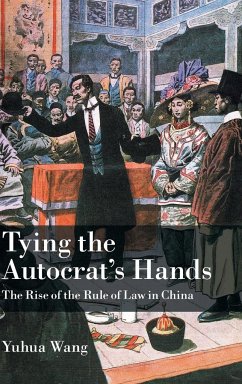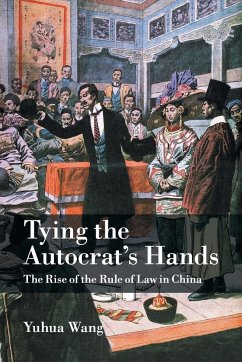
Autocrat's Predicament
The Political Peril of Economic Upgrade in Single-Party Authoritarian Regimes
Versandkostenfrei!
Versandfertig in 1-2 Wochen
92,99 €
inkl. MwSt.
Weitere Ausgaben:

PAYBACK Punkte
46 °P sammeln!
The theory of the "enabling condition" explains how favorable political conditions can facilitate economic upgrade. Through a case study comparison involving five single party, authoritarian regimes, it concludes that China's unfavorable political situation augurs ill for its ambitions to build a highly productive economy.














